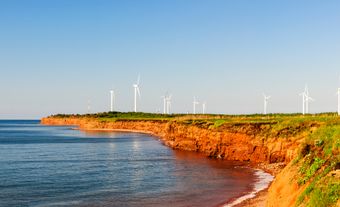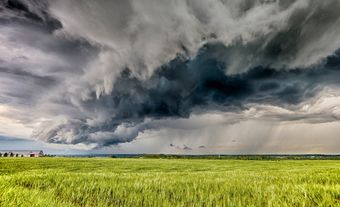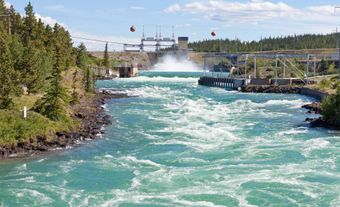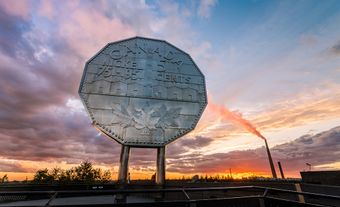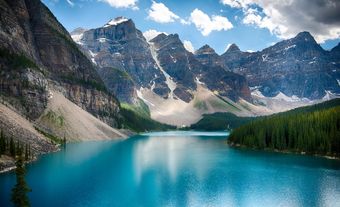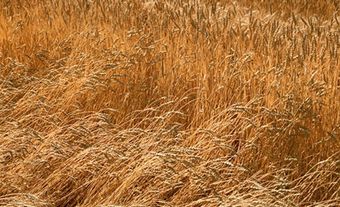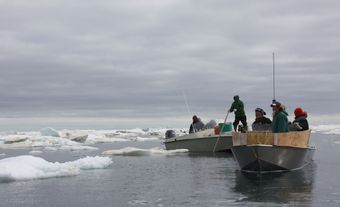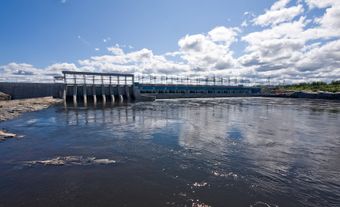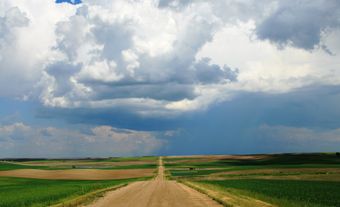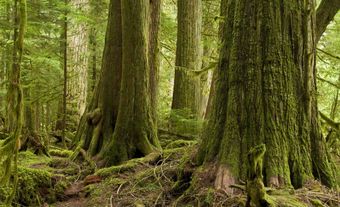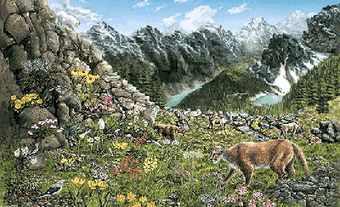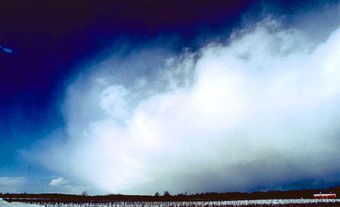There are many types of natural resources. These resources are used for goods and services. Some natural resources are air, sunlight, water, land, vegetation, minerals and animals. Canada has many natural resources. Canadians debate about how they should be used. We need natural resources. So, it is important to know how to use them responsibly.
(This article is a plain-language summary of Natural Resources in Canada. If you are interested in reading about this topic in more depth, please see our full-length entry, Natural Resources in Canada.)

Non-Renewable Resources
Many natural resources are non-renewable. The term non-renewable means that resources can not last forever. Minerals, oil, gas, and coal are non-renewable resources. It is often difficult to find these resources. It is also difficult to remove them from the earth and sea. It can be expensive too. Removing and using these resources is often controversial. Doing so can be bad for the environment.
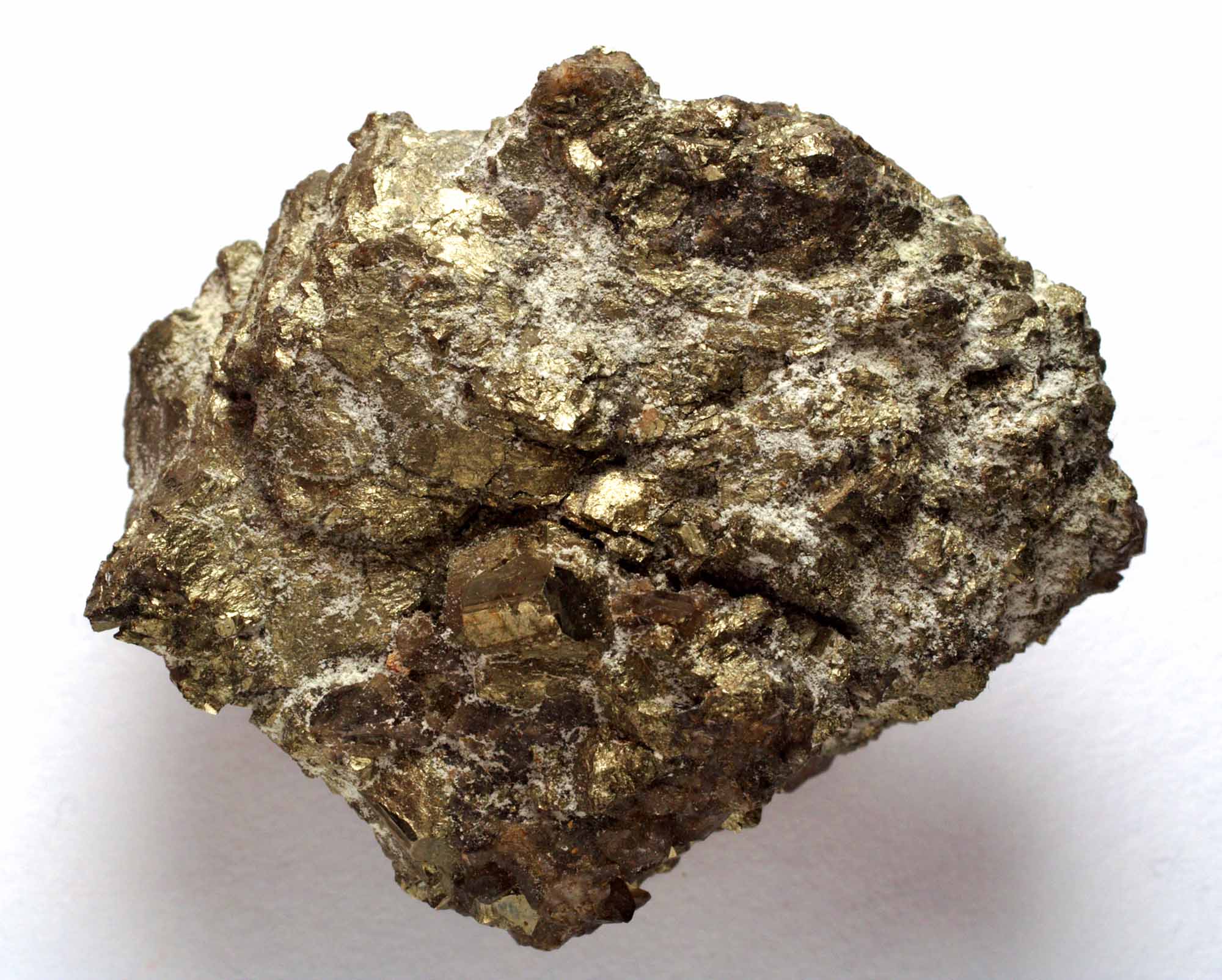
Renewable Resources
Renewable resources are resources that can “re-new” themselves. Solar energy and wind energy are renewable resources. Water, plants and animals are also renewable resources. But these resources can be lost through pollution, harvesting and hunting. For example, animals can be hunted to the point of extinction.
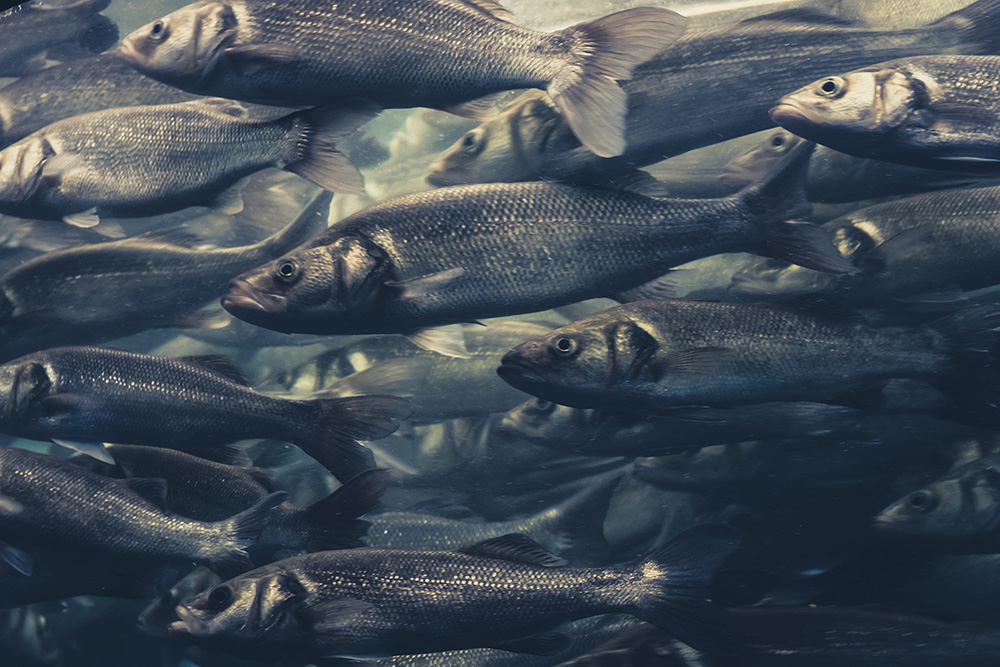
Human Relationship to Natural Resources
Natural resources can disappear. The use of natural resources can also damage the environment. And not using resources wisely can be very bad for the economy. For these reasons, there are many debates about what it means to use resources properly. For example, there are struggles about who should own resources. There are also struggles about how to use resources. These are serious debates. When resources are not used well it can have very negative effects on the environment and Canadians.
Resource Management Practices in Canada
Resource management is the practice of using resources wisely. Resource management involves many different types of groups. These groups include governments, businesses, scientists, and Indigenous peoples in Canada. Together they contribute to developing laws and practices. Provinces and territories are mostly responsible for natural resource management.
Indigenous Resource Management Practices
Indigenous peoples in Canada have practiced resource management for a long time. Indigenous peoples have always thought about how to best preserve the land. They have also thought about how to share and use resources. They understand that resources need to be sustained to ensure survival. (See also Sustainability in Canada.)
Some Indigenous communities work with governments to manage natural resources. Together they concentrate on how to preserve the environment and sustain resources. Some businesses also work with Indigenous communities. The purpose is to find ways to use of resources that can benefit everyone.
Challenges
Canada has a lot of natural resources. Some of these resources have been overused. Two such resources are agricultural land and oil. ( See also Agriculture in Canada.) It is difficult to make the land as productive as before. And, in some oil fields the oil is disappearing. Canada needs to find ways to maintain its natural resources. New technologies can help with finding and using resources wisely.

Resource management practices will also be more important in the future. The Canadian population is growing. More people will use more resources. Also, more people outside of Canada will want to use Canada’s resources. This can be particularly true of oil. Currently, there is much debate about what to do about oil pipelines. Pipelines can be bad for the environment. However, if Canada is to supply the world with more oil, pipelines are needed. Then again, the use of oil is environmentally unsustainable. Canadians will continue debating the subject of oil and the use of all other natural resources for a long time.

 Share on Facebook
Share on Facebook Share on X
Share on X Share by Email
Share by Email Share on Google Classroom
Share on Google Classroom
